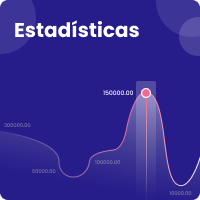Psychometric properties of the Perceptions of Organizational Politics -POPS- Scale in Puerto Rico
DOI:
https://doi.org/10.21615/cesp.6005Palavras-chave:
confirmatory factor analysis, validity, organizational politics, psychometric, Perceptions of Organizational Politics Scale, POPS ScaleResumo
Background: perceptions of organizational politics have many consequences on work behavior. Therefore, organizational politics has gained an interest in research examining the influential factors and behaviors in which organizations operate over the past few years. Objectives: this work aims to explore and present the psychometric properties of the Perceptions of Organizational Politics Scale adapted version. Method: a quantitative study of cross-sectional and instrumental type design in a sample of 205 participants representing public and private working sectors in Puerto Rico and the analysis carried out to verify the factorial structure of the scale and the reliability and validity indicators. Results: the Confirmatory Factor Analysis with Structural Equation Modeling showed better fit indices and a three-factor structure according to the original scale and obtained optimal internal consistency values for each factor. Conclusion: this study provides an instrument for both researchers and professionals to study the phenomenon of organizational politics in the workplace and organizations and allows them to contribute new studies and literature in Puerto Rico.
Downloads
Referências
Aiken, L.R., & Groth-Marnat, G. (2005). Psychological testing and assessment (12th ed.). Pearson Education.
Ali Khushk, A., Zengtian, Z., & Aman, N. (2021). Game of organizational politics leading to turnover intention. Journal of Advanced Research in Economics and Administrative Sciences, 2(3), 35-49. http://doi:10.47631/jareas.v2i2.223
Al-Abbrow, H.A. (2018). The effect of perceived organizational politics on organizational silence through organizational cynicism: Moderator of role perceived support. Journal of Management & Organization, 1(20). https://doi.org/10.1017/jmo.2018.62
Allen, R.W., Madison, D.L., Porter, L.W., Renwick, P.A. & Mayes, B.T. (1979). Organizational politics: tactics and its characteristics actors. California Management Review, 22(1), 77-83. https://doi.org/10.2307/41164852
Atinc, G., Darrat, M., Fuller, J. & Parker, B. (2010). Perceptions of organizational politics: A meta-analysis of theoretical antecedents. Journal of Managerial Issues. 22, 494-513. https://doi:10.2307/25822527
Bedi, A., & Schat, A. C. H. (2013). Perceptions of organizational politics: A meta-analysis of its attitudinal, health, and behavioral consequences. Canadian Psychology, 54, 246-259. https://doi.org/10.1037/a0034549
Brislin, R.W. (1970). Back-translation for cross research. Journal of Cross-Cultural Psychology, 1(3), 185-216. https://doi:10.1177/135910457000100301
Brislin, R.W. (1986). The wording and translation of research instruments. In W.J. Looner & J.W. Berry (Eds.), Field methods in cross-cultural research (pp. 137-164). Sage Publications. https://doi.org/10.1177/017084068800900318
Brown, T. A., (2015). Confirmatory factor analysis for applied research (2nd ed.). The Guilford Press.
Brunner, M., & Süb, H. (2005). Analyzing the reliability of multidimensional measures: An example from intelligence research. Educational and Psychological Measurement, 65(2), 227-240. https://doi.org/10.1177/0013164404268669
Buchanan, D.A. & Badham, R.J. (2008). Power, politics, and organizational change: Winning the turf game. Sage Publications.
Byrne, B. M. (2016). Structural equation modeling with AMOS: Basic concepts, applications, and programming. Structural equation modeling (3rd ed.). Routledge.
Cacciattolo, K. (2015). Organisational politics: The positive and negative sides. European Scientific Journal, ESJ, 11(1), 121-129. Retrieved from https://eujournal.org/index.php/esj/article/view/4941
Creswell, J. W. (2014). Research design qualitative, quantitative, and mixed methods approach (4th ed.). SAGE Publications, Inc.
Christie, R., & Geis, F. (1970). Studies in machiavellianism. Academic Press.
Deng, L., & Chan, W. (2017). Testing the difference between reliability coefficients alpha and omega. Educational and Psychological Measurement, 77(2), 185-203. https://doi.org/10.1177/0013164416658325
DeVellis, R.F. (2016). Scale development: Theory and applications (4th ed.). Sage.
Field, A. (2018). Bundle:Field: Discovering statistics using IBM Spss statistics (5th ed). Sage.
Ferris, G.R & K. M. Kacmar. (1992). Perceptions of organizational politics. Journal of Management, 18 (1), 93-116. https://doi.org/10.1177/014920639201800107
Ferris, G.R., Treadway, D.C., Kolodinsky, R.W., Hochwarter, W.A., Kacmar, C.J., Douglas, C. & Frink, D.D. (2005). Development and validation of the political skill inventory. Journal of Management, 31(1), 126– 152. https://doi.org/10.1177/0149206304271386
Fornell, C., & Larker, D.F. (1981). Evaluating structural equation models with unobservable variables and measurement error. Journal of Marketing Research, 18(1), 39-50. https://doi.org/10.2307/3151312
Goodman, J.M., Evans, W.R., & Carson, C.M. (2011). Organizational politics and stress: Perceived accountability as a coping mechanism. The Journal of Business Inquiry. 10(1), 66-80.
Goodman, M. (1961). Snowball sampling. Annual of mathematical statistics, 32(1), 148-170. https://doi.org/10.1214/aoms/1177705148
Hair, J. F., Black, W. C., Babin, B. J., & Anderson, R. E. (2014). Multivariate data analysis (7th ed.). Pearson Education.
Hernández-Sampieri, R., Fernández-Collado, C. & Baptista Lucio, P. (2014). Metodología de la investigación. Sexta Edición. McGraw-Hill.
Khushk, A. A., Zengtian , Z. ., & Aman , N. (2021). Game of organizational politics leading to turnover intention. Journal of Advanced Research in Economics and Administrative Sciences, 2(2), 35-49. https://doi.org/10.47631/jareas.v2i2.223
Kline, T. J. B. (2005). Psychological testing: A practical approach to design and evaluation. SAGE Publications.
Kline, R. B. (2016). Methodology in the social sciences. Principles and practice of structural equation modeling (4th ed.). Guilford Press.
Kacmar. K.M. & Ferris, G.R. (1991). Perceptions of organizational politics scale (POPS): Development and construct validation. Educational and Psychological Measurement, 51,193-205. http://dx.doi.org/10.1177/0013164491511019
Kacmar, M. & Carlson, D.S. (1997). Further validation of the perceptions of politics scale (POPS): A multiple sample investigation. Journal of Management, 23(5), 627-658. https://doi.org/10.1016/S0149-20639790019-2
Malhotra, N. K., & Dash, S. (2011). Marketing research an applied orientation. Pearson Publishing.
Montero, I., & León, O. G. (2007). A guide for naming research studies in psychology. International Journal of Clinical and Health Psychology, 7(3), 847-862.
Peterson, R., & Kim, Y. (2013). On the relationship between coefficient alpha and composite reliability. Journal of Applied Psychology, 98(1), 194-198. https://doi.org/10.1037/a0030767
Rana, A., Mahmood, H. & Riaz, A. (2022). Is organizational politics destroying. Elementary Education Online, 19(3), 2569-2578. https//doi:10.17051/ilkonline.2020.03.735417
Rawls, J. (1971). Theory of justice. Belknap Press
Shapiro, S.S., & Wilk, M.B. (1965). An analysis of variance test for normality (complete samples), Biometrika, 52(3/4), 591-611. https://doi.org/10.2307/2333709
Tabachnick, B. G. & Fidell, L. S. (2013). Using multivariate statistics (6th ed.). Allyn and Bacon.
Valle, M., Kacmar, K.M., & Zivnuska, S. (2019). Understanding the effects of political environments on Unethical Behavior in Organizations. Journal of Business Ethics, 156(3), 1-16. http//doi: 10.1007/s10551-017-3576-5
Valle, M., & Perrewe, P.L. (2000). Do politics perceptions relate to political behaviours?: Tests of an implicit assumption and expanded model. Human Relations, 53(3), 359–86. https://doi.org/10.1177/0018726700533004
Vigoda-Gadot, E. (2003). Developments in organizational politics: How political dynamics affect employee performance in modern work sites. Edward Elgar Publishing.
Wangui, N.P. & Muathe, S.M.A. (2014). A critical review of literature on organizational politics and work outcomes. The International Journal of Business & Management, 2(12), 158-165. http://ir-library.ku.ac.ke/handle/123456789/13078
Wiltshire, J., Bourdage, J.S., & Kiboen, L. (2014). Honesty-humility and perceptions of organizational politics in predicting workplace outcomes. Journal of Business Psychology, 29(2), 235-251. https://doi.org/10.1007/s10869-013-9310-0
Downloads
Publicado
Como Citar
Edição
Seção
Licença
Copyright (c) 2022 Abner Velez Vega

Este trabalho está licenciado sob uma licença Creative Commons Attribution-NonCommercial-ShareAlike 4.0 International License.
Revista CES Psicología ISSN 2011 3080
Facultad de Psicología, Universidad CES Primera edición 2008. Última actualización Mayo 18 de 2022. Todos los derechos reservados. Hecho el depósito legal que exige la ley.
Se autoriza la reproducción total o parcial de los artículos citando la fuente y el autor. This publication may be reproduced by mentioning the source and the authors.
| Métricas do artigo | |
|---|---|
| Vistas abstratas | |
| Visualizações da cozinha | |
| Visualizações de PDF | |
| Visualizações em HTML | |
| Outras visualizações | |




